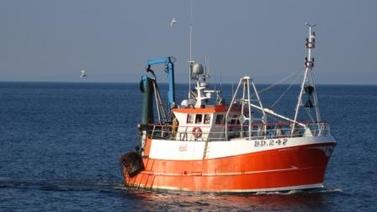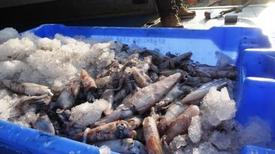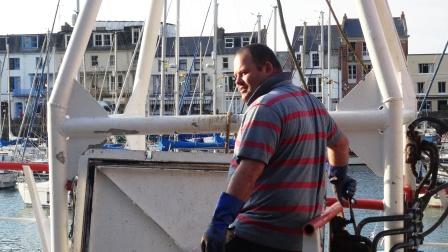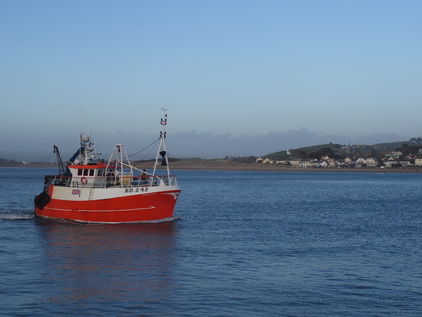 Sparkling Star coming home with squid
Sparkling Star coming home with squid  squid being unloaded
squid being unloaded | If like me you enjoy squid and want to eat local, seasonal catch now is the time to ask your fishmonger for squid. Dan the Clovelly fishman is bound to have some. If you’re not sure what to do with it, ask your fishmonger (details on our fish page) or try some of SeaDog’s delicious streetfood. Jim and Beth are trying all sorts of internationally inspired recipes using North Devon’s seasonal catch – including squid! |



 RSS Feed
RSS Feed











